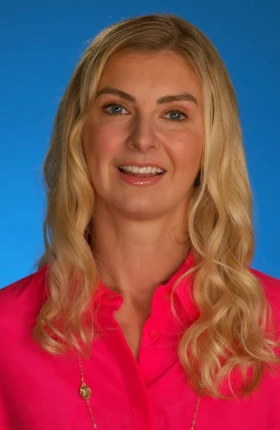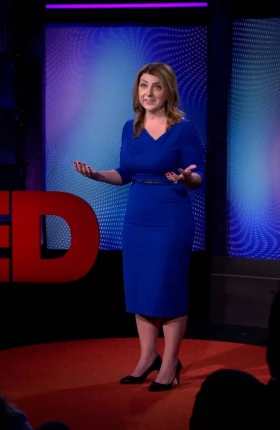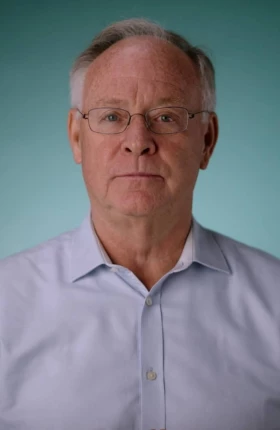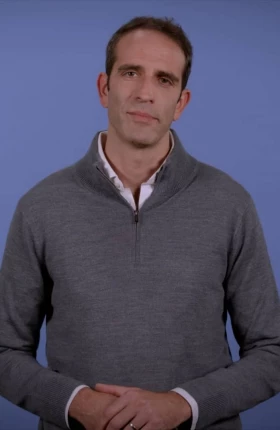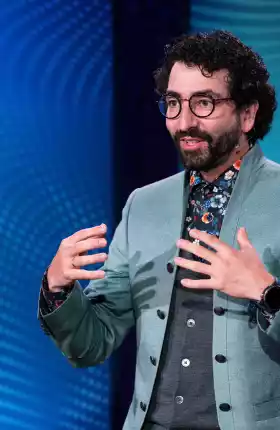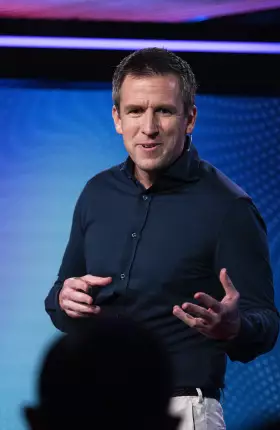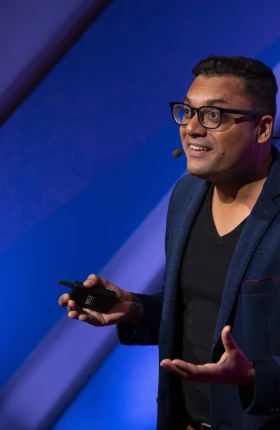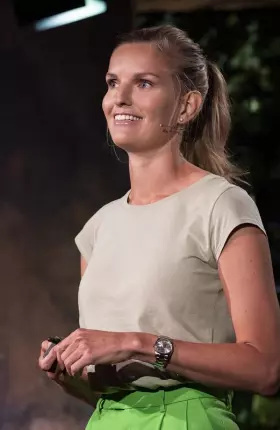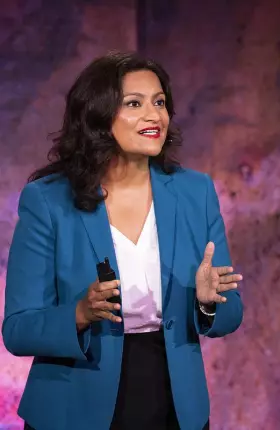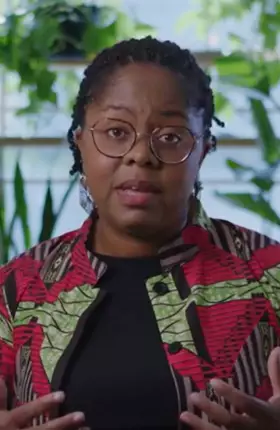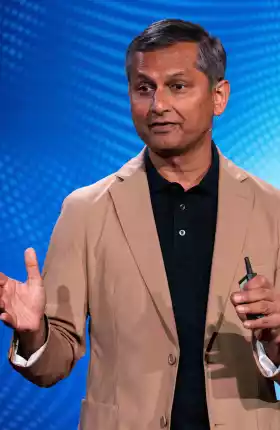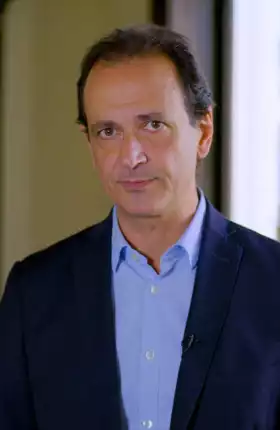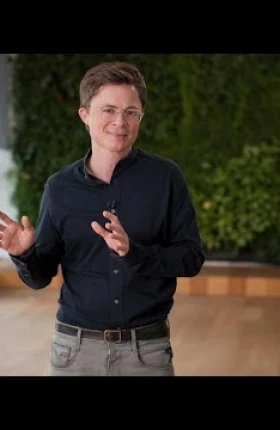Latest Releases
Video
May 13, 2025
Rosie Sargeant offers three tips to make work more joyful, increase employee retention, and boost customer satisfaction.
Video
May 8, 2025
The Key to Navigating Change with Confidence
What if the change you fear most is actually the best thing for you? Kristy Ellmer explains how even the most difficult transitions can open unexpected doors.
Video
May 7, 2025
Is Generosity the Most Underrated Leadership Skill?
Joe Davis shares three essential tips for leaders to unlock the potential of their teams.
Video
April 23, 2025
What You Miss When You Focus on the Average
Sharon Zicherman challenges the way we interpret data, revealing a smarter approach to assessing risk and making better choices.
Artificial Intelligence and Our Digital Future
Video
January 2, 2025
Why Do We Still Negotiate the Price of Cars?
Negotiating the price of a product can be uncomfortable. Andrej Levin shows how advancements in AI could help companies across industries set optimal fixed prices, making bargaining a thing of the past.
Video
October 14, 2024
The Power of Personalization in the Age of AI
Sharing insights from his research, BCG's Mark Abraham highlights a key mindset that can help companies boost their growth—and delight their customers—in today's era of AI.
Video
June 14, 2024
BCG's Sagar Goel offers a lesson on becoming a lifelong learner, sharing practical examples from a partnership with the Singaporean government that helped thousands of workers transition into new careers.
How to Lead
Video
May 7, 2025
Is Generosity the Most Underrated Leadership Skill?
Joe Davis shares three essential tips for leaders to unlock the potential of their teams.
Video
November 17, 2022
What if leadership at work wasn't for a select few, but shared among many? BCG partner Gitte Frederiksen gives us the recipe for "distributed leadership," showing how it allows teams to do more and do it better.
Video
May 20, 2022
How Great Leaders Innovate—Responsibly
In times of uncertainty, leaders have a responsibility to inspire hope. Sharing hard-won wisdom, General Catalyst chairman and managing director Ken Chenault talks about what it takes to enact positive, enduring change.
The Power of Diversity, Equity, and Inclusion
Video
January 26, 2023
BCG managing director and partner Aparna Bharadwaj looks at under-the-radar affinities that reach beyond individual cultures, highlighting patterns that could bring the world closer together.
Video
October 22, 2020
How to Reduce the Wealth Gap between Black and White Americans
White families in the United States have a median wealth nearly 10 times greater than that of Black families. BCG managing director and partner Kedra Newsom Reeves explores this racial wealth inequality, and outlines how financial institutions can support Black Americans.
Video
June 20, 2024
BCG's Adam Whybrew shares his own experience with mental health, revealing the surprising benefits of opening up—and how being vulnerable creates a safe space for everyone.
Climate Change and Total Societal Impact
Video
March 27, 2024
BCG's Shruthi Baskaran-Makanju explains how best to preserve Africa's vital pastoral communities—and why they're key to solving nutritional challenges impacting African children.
Video
April 26, 2023
How can coastal communities build resilience to the increasing risks of climate change? BCG managing director and partner Dave Sivaprasad outlines how to tackle this complex challenge.
Our Evolving World of Work
Video
December 4, 2024
K-Pop, Cutting-Edge Tech and Other Ways Asia Is Shaping the World
Neeraj Aggarwal explores how Asia’s booming culture and economy is sparking creative solutions to global challenges and reshaping the future in unexpected ways.
Video
December 21, 2023
The Real Gold of Our Economy Is in Our Hands
BCG‘s Salvatore Cali lays out the most common time-wasting pitfalls, urging policy leaders and businesses to reevaluate what they ask of both employees and consumers.
Video
July 18, 2023
If a diverse workforce makes a better company, why don’t more businesses hire internationally? Innovation and migration strategist Johann Daniel Harnoss, a partner at BCG, details how how to best build the systems and culture to welcome immigrants to your staff.
Complete Talk Library
INDUSTRIES
Automotive
Biopharmaceuticals
Consumer Products
Education
Engineered Products and Infrastructure
Financial Institutions
Health Care Payers & Providers & Services
Media & Entertainment
Medical Devices & Technology
Power and Utilities
Principal Investors & Private Equity
Public Sector
Retail
Technology, Media, and Telecommunications
Transportation and Logistics
Travel and Tourism
